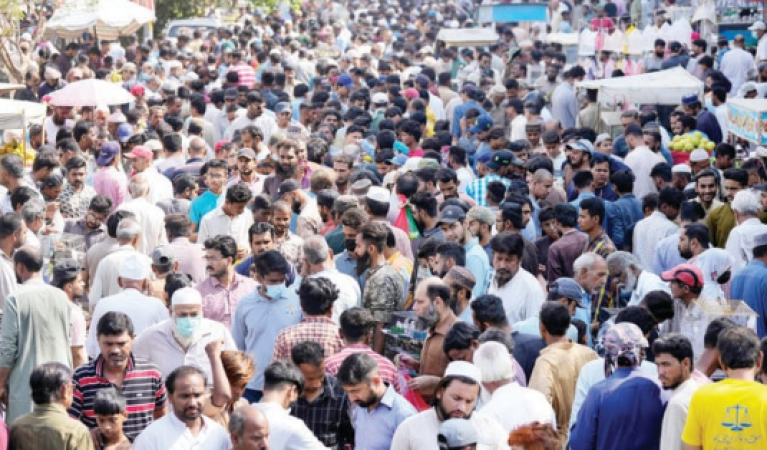
Lagos: The United Nations estimates that the world's population will reach 8 billion on Tuesday, with most of the growth coming from developing African countries.
Nigeria is one of them, where the resources are already at their maximum potential. In Lagos, which has a population of more than 15 million, people compete for everything from spots on crowded buses to electricity to light their homes, often traveling two hours each way. Some Nigerian children leave for school as early as five in the morning.
The West African country's population is projected to grow from 216 million this year to 375 million over the next three decades, according to the United Nations. As a result, Nigeria will have the fourth largest population in the world after China, India and the United States.
Also Read: Xi-Biden meeting demonstrates the capacity to manage a "complex" trade relationship
“We already have – housing, roads, hospitals and schools – already overburdened. Everything was stretched too thin,” declared Giang Duliope, a Nigerian urban planning and development consultant.
In a comprehensive report published over the summer that made some surprising estimates, officials cautioned that the $8 billion milestone on Tuesday, United Nations Day, is more symbolic than precise.
As governments struggle to accommodate adequate classrooms and employment opportunities for rapidly growing numbers of youth, and food insecurity becomes an ever more pressing issue, the upward trend is even greater in developing countries. it occurs. Threatens to push people back.
Along with Tanzania, Congo and Ethiopia, Nigeria is one of eight countries that the United Nations predicts will account for more than half of global population growth between now and 2050.
The population of many countries in sub-Saharan Africa is expected to double between 2022 and 2050, according to a UN report, putting additional pressure on already stretched resources and making it harder to tackle poverty and inequality.
Also Read Judiciary: Iran hands down second death sentence over ‘riots’
According to predictions, there will be about 8.5 billion people on the planet in 2030, 9.7 billion in 2050, and 10.4 billion in 2100.
Egypt, Pakistan, the Philippines and India have dropped out of the list of countries with the fastest growing population. India is expected to overtake China as the world's most populous country next year.
Many families in Kinshasa, the capital of the Democratic Republic of the Congo, where more than 12 million people live, struggle to find and pay for affordable housing. Young children can attend primary school for free, but their chances depend on their parents' income.
Luke Kyungu, a truck driver in Kinshasa, said his six children take turns going to school. Due to the cost, two people studied while the rest kept waiting. Had I not had so many children, I would have completed my studies on time.
Rapid population growth forces more people to compete for limited water supplies and increases the number of hungry households as climate change adversely affects crop production in many parts of the world.
According to Dr. Srinath Reddy, President, Public Health Foundation of India, the challenges of food security are increasing as a result of increasing environmental pressure, which is made more serious by climate change. "Our policy makers must focus on reducing inequality while focusing on climate change adaptation and mitigation."
However, experts argue that consumption, which is highest in developed countries that are not experiencing rapid population growth, poses a greater threat to the environment.
Poonam Muttreja, executive director of the Population Foundation of India, said evidence from around the world shows that a small percentage of the world's population uses most of the planet's resources and generates most of the greenhouse gas emissions. "Over the past 25 years, the richest 10 percent of the global population have been responsible for more than half of all carbon emissions."
Also Read SA Test skipper Elgar wants different coaches in different formats
The population of sub-Saharan Africa is growing at a rate of 2.5% per year, which is more than three times the rate of the rest of the world. Even though people are living longer, the primary reason for this is still family size. The average number of births per woman in sub-Saharan Africa is 4.6, more than double the current global average of 2.3.